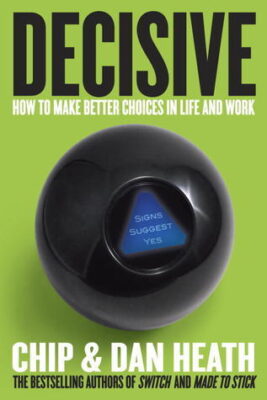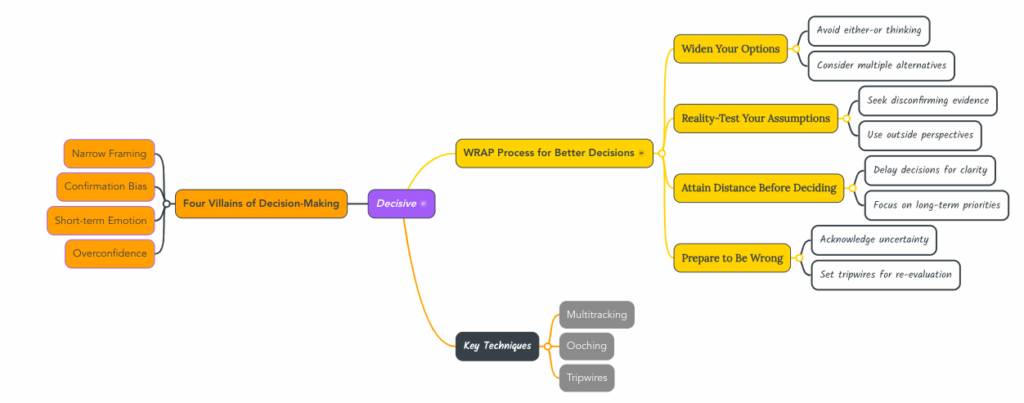
Our Book Summary:
“Decisive” by Chip Heath and Dan Heath was an interesting read for me in making decisions—professional and personal alike. The authors manage to break down very nicely some of the common pitfalls that culminate into poor decisions, such as narrow framing, confirmation bias, short-term emotions, and overconfidence. The authors present the WRAP process as a clear and systematic set of procedures for overcoming these biases by widening options, reality-testing assumptions, attaining distance, and preparing for possible failures.
The book is filled with many examples and case studies that illustrate complex psychological ideas. It’s a must-read for all those who want to make more informed and rational decisions and avoid falling into the pitfalls of hasty or emotional choices.
What to BUY this Book?
Mindmap
The Four Villains of Decision Making:
- Narrow Framing: People often define choices too narrowly, missing out on other viable options.
- Confirmation Bias: We seek information that supports our pre-existing beliefs, ignoring contradicting evidence.
- Short-Term Emotion: Temporary emotions cloud judgment, leading to poor decisions
- Overconfidence: We often overestimate our knowledge and the accuracy of our predictions
WRAP Framework:
- The book outlines a decision-making process called WRAP: Widen Your Options, Reality-Test Your Assumptions, Attain Distance Before Deciding, and Prepare to Be Wrong.
Widen Your Options:
- Avoid narrow framing by exploring multiple options
- Do not limit yourself to one option too early in the decision-making process.
Reality-Test Your Assumptions:
- Seeking information that challenges your initial assumptions.
- Use methods like small experiments or consulting external viewpoints to avoid confirmation bias.
Attain Distance Before Deciding:
- Create space between yourself and the decision to prevent being influenced by temporary emotions.
- Imagine what advice you would give to a friend or consider how you would feel about the decision in the future.
Prepare to Be Wrong:
- Count on the unpredictability of outcomes and the importance of planning for potential failures.
- The concept of “tripwires” helps you reassess decisions before they lead to significant problems.

What to BUY this Book?
